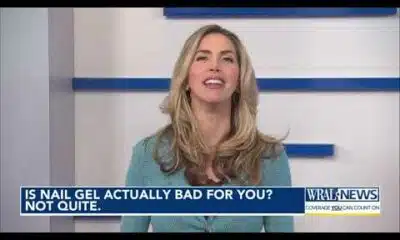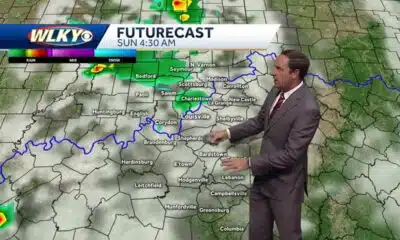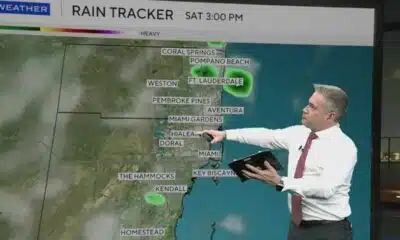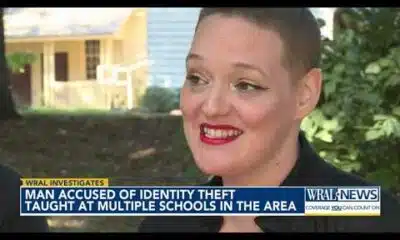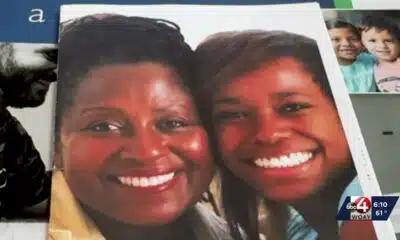News from the South - Texas News Feed
School voucher bill debate centers on wealthy Texans
Debate on House’s school voucher bill centers on a question: Should wealthy Texans be included?
“Debate on House’s school voucher bill centers on a question: Should wealthy Texans be included?” was first published by The Texas Tribune, a nonprofit, nonpartisan media organization that informs Texans — and engages with them — about public policy, politics, government and statewide issues.
Sign up for The Brief, The Texas Tribune’s daily newsletter that keeps readers up to speed on the most essential Texas news.
With diminished power to block school vouchers this legislative session, Texas Democrats sought Tuesday to frame public discussion on the contentious issue around one question: Should the state allow wealthy Texans to pay for their children’s private education using taxpayer dollars?
Lawmakers sparred over that question during a tense, highly attended public hearing on House Bill 3, one of the two main proposals seeking to create a school voucher program, a top priority for Texas’ Republican leadership.
The House’s voucher plan would allocate $1 billion toward education savings accounts that some families could use for private school tuition and other educational expenses, like textbooks, transportation and therapy. Under the proposal, most participating students would receive roughly $10,893 every year, an amount equal to 85% of what public schools get for each student through state and local funding, with additional money set aside for students with disabilities and home-schoolers.
Any child eligible to attend a public school could apply to the program. So could those enrolled in a public school’s pre-K program and families with children attending private schools.
Supporters have long pitched vouchers as a tool that will primarily benefit low-income students — and not just, as their critics argue and research in other states shows, channel taxpayer dollars to families already paying for their kids’ private education.
[School choice, vouchers and the future of Texas education]
Tuesday presented the first opportunity this session for lawmakers in the House, where efforts to establish a voucher program repeatedly failed two years ago, to hear testimony from education experts and the public on the latest proposal.
“My intent is to provide families with the opportunity to choose the best possible educational setting for their child,” said Republican Rep. Brad Buckley of Salado, the bill’s author and chair of the House Public Education Committee. “I believe House Bill 3 provides this choice while prioritizing Texas’ most high-needs and vulnerable students.”
The daylong hearing, with hundreds scheduled to testify late into the night, featured discussions about the segregation-era roots of vouchers; Democratic skepticism about the motivations of the late “school choice” advocate Milton Friedman; Republican criticism of a national voucher expert and critic who cited a decade of research showing unfavorable academic results in such programs; and pleas to pour more resources into public education. Private school students and officials, meanwhile, raved about the opportunity the legislation hopes to provide them.
“Families should not have to pay twice — once in taxes for a system that may not meet their child’s needs, and again, for tuition, for the education they truly want,” said Brian Archer, an administrator for Joshua Christian Academy, located near Fort Worth. “HB 3 empowers parents, not the government, to make the best decision for their child’s education.”
But by investing state dollars in private schools, others said, Texas officials would leave public schools to operate with fewer resources and reduced funding. Legislative budget experts recently predicted that public schools, which receive money based on attendance, may lose dollars if kids leave to participate in the state’s voucher program.
“It would be stealing public funds from the award-winning pre-K my own son currently attends,” said Luisa White, a public school educator in Corpus Christi. “It would be stealing public funds from the elementary school where my little boy will begin kindergarten next year, and it would be stealing public funds from the high school I currently serve.”
Democrats spent hours interrogating what they see as contradictions and weaknesses in the legislation, focusing heavily on the evidence available from other states that have implemented large-scale voucher programs.
Studies have shown little evidence that vouchers lead to improved test scores for low-income students, with some of the most negative academic outcomes occurring as vouchers have expanded in the last decade. The bills do not impose any admission or enrollment requirements on the private schools that choose to participate in the program, meaning they would face no state pressure to adjust their costs, ensure more racial and ethnic diversity or accept students from different faith traditions.
While the measure seeks to prioritize students with disabilities and those it defines as “low income,” the bill does not say what would happen to children who make it through the eligibility process and cannot find a private school in Texas to accommodate their needs. However, lawmakers who support the measure have said those students would not participate in the program.
That has concerned public education advocates, who have underscored the potential impact on kids needing special education services. Unlike public schools, private schools do not have to follow federal laws seeking to ensure those students receive adequate evaluations and educational services.
“They rely on the wraparound services our public schools provide — mental health support, special education interventions, transportation, meals and a team of educators fighting for their success,” said Tania Tasneem, a teacher of 18 years who testified about the academic success of a student with a disability she worked closely with. “Diverting public funds through ESAs weakens the very system that held her up.”
But the most pressing topic of discussion Tuesday was access. Many of the students currently benefiting from voucher programs in other states had already attended private schools before signing up, meaning their families had previously committed to paying thousands of dollars in tuition without government assistance.
Democrats said Texas appears headed in the same direction.
Rep. James Talarico, the Austin Democrat helping lead the voucher opposition, criticized the bill for lacking provisions to ensure private schools accept students eligible for the program, as well as the argument that Texas does not need such accountability requirements because families will ultimately decide which private schools meet their needs.
“We are allowing the private school to have the ultimate power in this equation, and so I resent the effort to use parents as a shield for this push for privatization,” he said.
Democrats proposed several ideas they said could align the bill with Republicans’ stated goal of serving the neediest students. They said the legislation could place an income limit on the families who can participate, prohibit participating private schools from denying students based on their family’s inability to pay tuition or impose enrollment requirements. Better yet, they said, lawmakers could instead invest the money from the proposed voucher program to help cover Texas’ $2 billion special education funding gap.
“Do you think our taxpayer dollars should go to a family making over $500,000 a year, who are already sending their kids to private school?” Talarico asked Buckley. “Not a low-income family. We could have that conversation. Not even a working-class, middle-class family. We could have that conversation. But your bill allows for, literally, millionaires to take money that could go to public schools to subsidize their private school tuition.”
Buckley and his fellow Republicans swiftly rejected those criticisms.
“Every parent in Texas deserves the right to make one of the most important decisions that they have to do as a parent, to have that freedom to make a decision on … where their kids are educated,” Buckley said. “After four years of runaway inflation, there are families that earn $120,000-$150,000 a year, and you have four or five kids, it’s a struggle. It’s difficult for us to make those judgments. But I do know that I trust parents to make the best decision for their kids.”
Rep. Alan Schoolcraft, R-McQueeney, criticized what he called the “millionaires and billionaires argument,” saying many rich families also enroll their children in public schools and pay significant money in property taxes that benefit their local campuses.
“It seems awfully petty to me to spend all this time and effort worrying about this infinitesimal little group of people who are putting so much more into” public education, he said.
Rep. Jeff Leach, a Plano Republican, said he loves public schools, which his children attend, but questioned why people are afraid of “true freedom, and choice and competition.”
“Right now, the fact is public schools have choices that parents don’t have. We have over 1,200 independent school districts in this state, each of whom the state has empowered to make certain decisions parents in those districts disagree with,” Leach said, using examples like districts that have decided to adopt four-day school weeks or not to participate in the state’s merit pay program for teachers.
“I hear this argument about this bill being all about billionaires, and millionaires and special interests. That’s not why I’m supporting this bill,” he added. “We can be friends and advocates, proudly so of our public schools, and also support the right, and the choice, and the freedom of Texas families to direct their kids’ education.”
Democrats and many people attending the hearing, who would often voice their frustrations quietly in the room, didn’t appear to support that argument.
Rep. Gina Hinojosa, D-Austin, said it was unfair that the voucher bill would allocate state funding to help market the program to families while public schools struggle to receive support from Texas officials in the work they do educating the state’s 5.5 million students.
“How nice would it be?” she asked.
Rep. Diego Bernal, a Democrat from San Antonio, repeatedly asked about how the state would ensure low-income families receive access to the program if the law doesn’t require private schools to help them with the costs. The average private school tuition in Texas sits at roughly $11,340, according to Private School Review, so the House’s voucher proposal may not fully cover the price at some campuses.
“Unless there’s a policy to do that, they’re asking me to bank on their goodwill. And I don’t doubt that that exists, but that’s not how you make policy,” Bernal said. “You can’t make policy like this — hoping that someone finds it in their heart to really make it happen.”
Talarico condemned his colleagues who support vouchers for choosing to invest billions of dollars into such a program instead of directing that funding to other critical areas.
“Instead of putting this toward public schools, roads, health care, water, we are sending it to parents who are already sending their kids to private school,” he said. “You can defend that. I think that is a catastrophic decision, an immoral decision.”
We can’t wait to welcome you to the 15th annual Texas Tribune Festival, Texas’ breakout ideas and politics event happening Nov. 13–15 in downtown Austin. Step inside the conversations shaping the future of education, the economy, health care, energy, technology, public safety, culture, the arts and so much more.
Hear from our CEO, Sonal Shah, on TribFest 2025.
TribFest 2025 is presented by JPMorganChase.
This article originally appeared in The Texas Tribune at https://www.texastribune.org/2025/03/11/texas-house-school-voucher-bill/.
The Texas Tribune is a member-supported, nonpartisan newsroom informing and engaging Texans on state politics and policy. Learn more at texastribune.org.
The post School voucher bill debate centers on wealthy Texans appeared first on feeds.texastribune.org
News from the South - Texas News Feed
Texas high school football scores for Friday, Sept. 12
SUMMARY: Lake Travis dominated Midland Legacy 59-13 in a spirited farewell to the old Cavalier Stadium before renovations force home games to move to Dripping Springs High School. Across Central Texas, notable district wins included Anderson over College Station (37-14), Bowie against Glenn (38-14), and Dripping Springs edging Harker Heights (31-26). High-scoring games saw McNeil top Westwood 70-45, and Hutto defeat Cedar Ridge 63-49. Close contests included Vista Ridge’s 30-29 win over Round Rock and Austin LBJ’s 34-33 overtime victory against Wimberley. The article also features an extensive list of scores from other Texas high school football games.
The post Texas high school football scores for Friday, Sept. 12 appeared first on www.kxan.com
News from the South - Texas News Feed
Safe Central Texas meet-up spots for online purchases
SUMMARY: The Lockhart Police Department created its first Community MeetUp Spot for safe internet purchase exchanges after a man stole shoes during a transaction. Located in the police station parking lot at 214 Bufkin Lane, it offers a secure, monitored area encouraging buyer and seller safety. Positive community feedback inspired the initiative. Several Central Texas police departments—including Georgetown, Cedar Park, Round Rock, Pflugerville, Manor, Austin, and Kyle—also provide designated or informal safe exchange spots. The Austin Police emphasize researching buyers/sellers, trusting instincts, and following safety tips such as taking photos, noting license plates, meeting in public areas, and keeping personal info private.
The post Safe Central Texas meet-up spots for online purchases appeared first on www.kxan.com
News from the South - Texas News Feed
Texas high school football scores for Thursday, Sept. 11
SUMMARY: On Thursday, Central Texas high school football saw dominant shutouts as Buda Johnson defeated Austin High 34-0, and Travis overwhelmed Navarro 55-0. Hendrickson rallied to beat Buda Hays 42-41 in a thrilling comeback during the KBVO Game of the Week. The Burbank at Luling game was canceled due to a social media threat, with law enforcement investigating and school officials ensuring student safety; no reschedule date has been set. Additional notable Texas scores include Arlington Martin’s 74-47 win over Mansfield and multiple lopsided victories across the state, highlighting a competitive week in Texas high school football.
The post Texas high school football scores for Thursday, Sept. 11 appeared first on www.kxan.com
-
News from the South - Alabama News Feed6 days ago
Amid opposition to Blount County medical waste facility, a mysterious Facebook page weighs in
-
News from the South - North Carolina News Feed6 days ago
Reagan era credit pumps billions into North Carolina housing | North Carolina
-
News from the South - Kentucky News Feed6 days ago
3 states push to put the Ten Commandments back in school – banking on new guidance at the Supreme Court
-
News from the South - South Carolina News Feed6 days ago
South Carolina’s Tess Ferm Wins Miss America’s Teen 2026
-
News from the South - North Carolina News Feed7 days ago
Man accused of identity theft taught at multiple schools in the area
-
News from the South - West Virginia News Feed7 days ago
National Grandparents Day (9-7-25) and the special bond shared with their grandchildren
-
Local News6 days ago
Duke University pilot project examining pros and cons of using artificial intelligence in college
-
Local News7 days ago
Marsquakes indicate a solid core for the red planet, just like Earth

